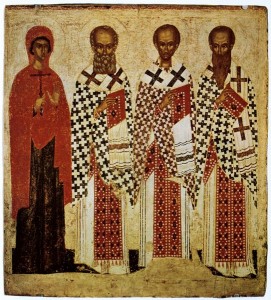Back in March I did a blog post about the church in Brentwood which suffered under the cultic regime of Michael Reid. MR, as I shall call him, was removed from post after details of an illicit ‘affair’ with the choir mistress came into the public domain in 2008. In fact there were numerous skeletons which tumbled out of the cupboard and these included the use of arbitrary power and manipulation as well as highly questionable financial dealings to benefit MR and others among the charmed circle of leaders. Following massive legal expense for the church, MR was removed from office. It still took a further five years to get a court order to evict him from the church premises that he occupied.
With the removal of MR, it might have been thought that the church could have a new start. But unfortunately for the church, the trustees appointed MR’s number two, Peter Linnecar, as pastor. Paying him an inflated salary of £80,000 pa, they believed that he could take them to a new future. The trustees had not calculated how much remained to be done to remove the old patterns of cultic church life that remained and in which Peter Linnecar had been deeply involved. A blog was begun by one Nigel Davies asking that a full account of the abuses of the past be acknowledged and proper apologies made. Many people had left the church with the departure of MR and the majority of them had suffered severely at his hand. These people wanted the church to come clean about the appalling events that the church had allowed to happen over 30 + years. From my point of view the church had exhibited all the typical signs of a cult so this blog, which I followed avidly, was of great interest, particularly as it revealed attitudes of both current and ex-members. From time to time I had cause to comment based on my studies of church dynamics or arising out of reflections on a visit to the church in 1998 in preparation for my book.
About five weeks ago, our blog came to interact with the Brentwood story. I had a chance email from one Gail (a pseudonym) who had visited this blog and liked the tone taken here on the theme of abusive religious groups. She had been part of Peniel, as Trinity church was then called, some thirty years ago. As a young woman from America she had been sent here to study in the so-called Bible school at Brentwood. In practice that meant the church had a group of young females to do chores around the premises of the church. Eight of them slept in a room with one toilet between them. In addition they were subject to relentless and aggressive bible indoctrination when they were humiliated and generally made to feel worthless. Gail also hinted to me of a darker aspect of her time in Britain.
I responded two or three times to Gail expressing my appreciation of the fact that she had chosen to trust me with this personal information which I promised not to pass on. I was also pleased that she had found helpful some of the material on the blog. The situation changed dramatically a week ago when Gail asked Nigel to publish on his blog a full account of her traumatic time in Brentwood at the so-called Bible school. The account is well written and is devastating in its effect on the reader. For those who do not want to read the account in full (connection to post given at end), Gail’s story is a description of cult life where total control was exercised. This extended to clothing, social contacts and even diet. Passports were taken away and money that had been sent by parents was intercepted and doled out in arbitrary small amounts. The dark secret, which Gail had hinted at in communicating to me, was rape at the hands of a church member. In spite of the devastation caused, Gail has emphasised in a subsequent contribution to Nigel’s blog that even more painful were the months of endless humiliation and mistreatment that preceded the sexual violence. Her words are as follows: ‘The emotional damage done by that night is terrible but, in all actuality, it pales in comparison to the damage done in the weeks and months leading up to that night. ‘
In the week since the publication of the account, the publicity machine at the church has gone into overdrive. There is a hint of panic in their public utterances. In a statement published some four days ago, the statement spoke of their intention to ‘investigate formally an allegation of impropriety’. A further statement spoke of the leaders desire to ‘apologise unreservedly for the hurt and distress caused’ and they expressed shame for ‘negative attitudes shown by the leaders towards various people at the time’. The statements represent a massive shift by Trinity Church even though genuine remorse for the events has yet to be shown. But the statements are possibly preparing us for a change of regime at Trinity and the removal of the chief pastor Peter Linnecar. Why do I think this? The language being used has for the first time used the language of apologies, something they have hitherto been unwilling to do. Previous statements by the church have spoken of regret that some people felt they had suffered. It has always been said that Trinity could not apologise because it would open them up to court cases. Now that they have been pushed into a corner by this allegation of a crime committed on their patch, they see perhaps that the fastest way out of the problem is to ditch their leader who was deeply implicated in everything that Reid was up to in the Bible College days.
I am of course speculating as to what will happen next, but the path to truth and justice for hundreds of people abused by the narcissism of Christian leaders is always difficult and tortuous. As I have pointed out before, the narcissistic fantasy for a many leaders like MR and Peter Linnecar is to believe that their utterances are beyond argument and infallible. This position of course goes hand in hand with a belief in the infallibility of the bible text. Gradually the authorised expounder of the infallible text becomes infallible themselves and it becomes almost impossible for them ever to admit being wrong. Gail’s testimony (and Nigel’s blog) is a powerful weapon against such pretentiousness and pomposity. Events are moving fast and things may change as soon as tomorrow. Meanwhile we believe in a God who scatters ‘the proud in the imagination of their hearts’. More to come.
Here is ref. to the student’s testimony
http://victimsofbishopmichaelreid.blogspot.co.uk/2014/10/a-cautionary-tale-from-survivor.html?showComment=1414146863353#c4239206485157513377



